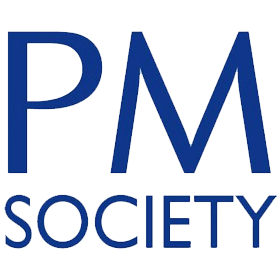The PM Society Careers event was back for its 5th year on the 21st of February at the Royal Society of Medicine, London.
With a great line up of influential industry experts from both pharmaceutical companies and agencies, the day offered lots of advice on how to get into the industry and the roles available, as well as personal experiences from our speakers’ own careers.
The first session of the day was hosted by co-leads of the PM Society Careers Interest Group, Simon Walker and Alex Merckx. They were joined by Caroline Benson, a PM Society Board Member and Claudia Coelho, co-lead of the PM Society Learning & Development Interest Group. Discussions took place around the pharmaceutical industry and healthcare communications, providing an introduction to anyone wanting to know more about the sector.
Here are some of the key highlights from this year’s first session:
Session 1 – Introduction to the pharmaceutical and healthcare comms industries
Caroline’s Career
A common theme for those with careers in healthcare communications is that they fell into the industry. Caroline Benson explained how this was the case for her and how her career began.
Tip: What you put in you get back out – People will reward you if you work hard.
Claudia’s Career
Claudia’s career started in a veterinary hospital while studying for her degree in biomedical science. After realising that the veterinarian sector isn’t about the medicine you could practice but about what people were willing to pay, she decided to reconsider her career path.
Like many others, she didn’t want to be confined to a lab all day and that was when a friend in pharmaceutical sales recommended the industry. This led to a role in research and clinical trials and then continuing her career in sales and eventually marketing.
How would you describe what the Healthcare communications industry is?
Caroline defines Healthcare comms as the support for the pharmaceutical industry. We support them with their communication and stakeholder engagement. There are so many roles in this area that no matter what parts of pharmaceuticals you do or do not like, there’s a role to suit you.
What’s the point of Healthcare communications?
What does communication mean in healthcare? Claudia explains to the audience that a few years ago the approach was to be to persuade, push and compete. Now it’s about adding personalised value to customers and patients, to understand what their challenges are, and providing solutions to overcome challenges. Communication is one of the channels you use to add this value.
The session then moved to a Q&A with the delegates.
When Claudia worked in medical sales, what was this like? What was her approach and daily tasks?
Claudia unravelled her time in sales from 12 years ago. Working in sales, you can no longer pester doctors and bring flashy brochures to market to them. Times have changed and you now need to listen and ask questions on what the challenges they’re facing in order to support patient outcomes. In sales, you need to understand what the clinicians are doing, in order to know how to support them and what projects can be put in place to add value.
When you meet a new client, how do you approach them regarding the strategy?
We need to understand the problem they are trying to solve…including their pain points and then create bespoke solutions, Claudia explains. All our proposals begin with discovery. Discovery means diving deep into the customer’s business to define what they actually need.
This session drew to a close with the audience having understood what healthcare comms means and how the industry has changed over the last decade.
For more information on healthcare comms careers, please visit our healthcomms.careers website.
